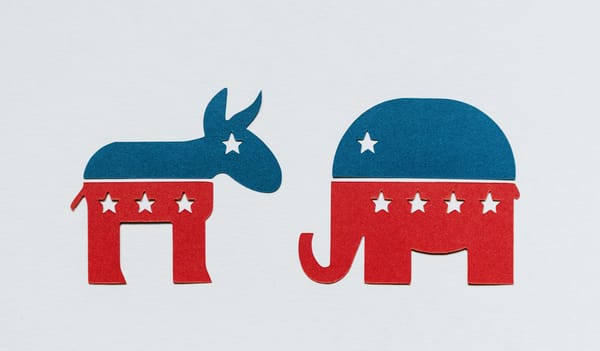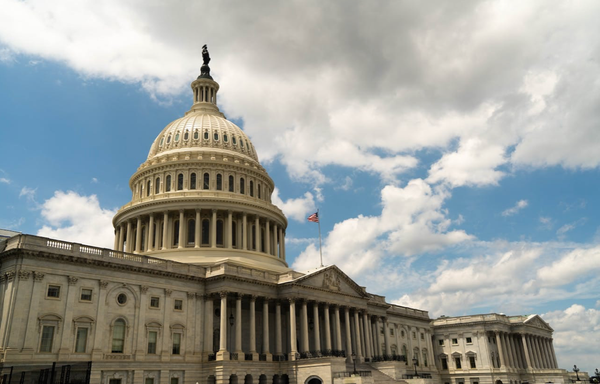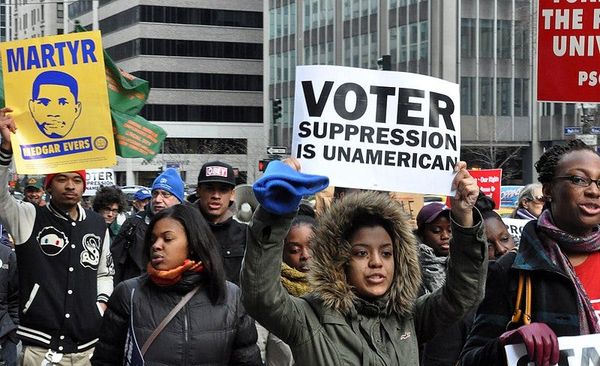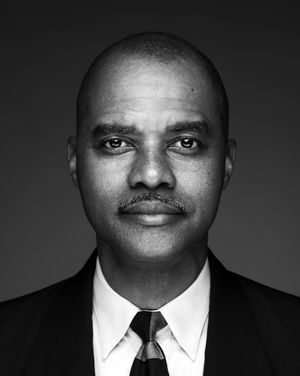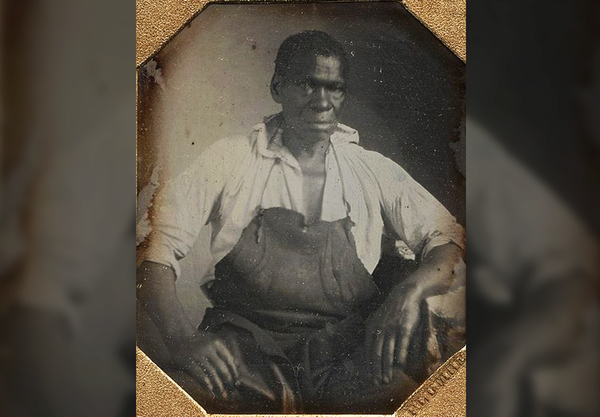A friend of mine with whom I worked in municipal government made a pointed observation:
“People who live in trailer parks don’t pay taxes and they don’t vote,” he said. “As far as I’m concerned, they don’t exist.”
Based upon his statement, I’m sure you can imagine how much consideration elected officials give to residents of trailer parks. In case you’re pondering the matter, the answer would be zero.
With his statement, he revealed a reality that is known to politicians, but often not discussed publicly: voting is about power. If you don’t vote, you have given up your power.
Throughout my career as a political activist I have heard various arguments regarding whether it’s worth it to vote or not. “People are dying for the right to vote,” argue posters displaying pictures of South Africans, Eastern Europeans, or Chinese people at Tiananmen Square protesting for the right to vote. The picture of the man single-handedly blocking the Chinese tanks is good for that.
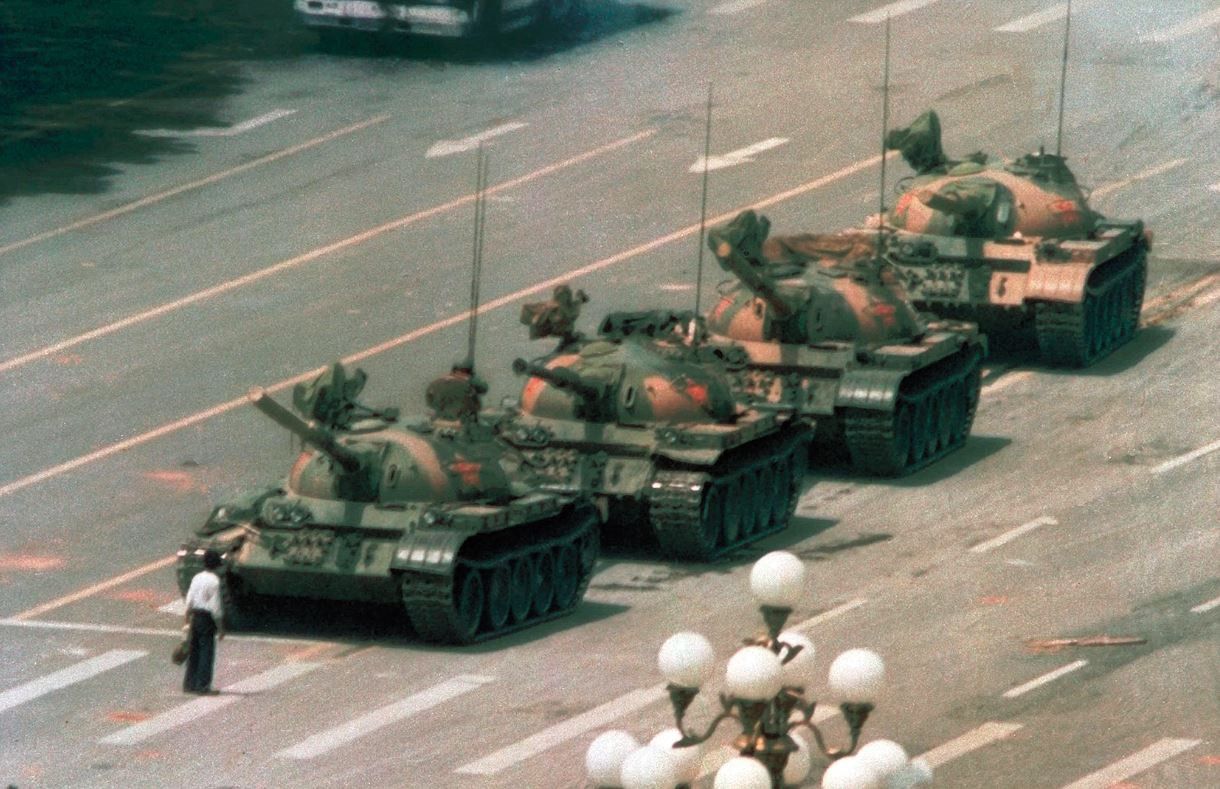
Then we can point out the many elections decided by the narrowest of margins. Kennedy’s victory over Nixon in 1960 by one vote per precinct is a classic example. The message is that each vote matters.
On the other hand, there are those who can’t be bothered. After all, one vote won’t make a difference, they argue. And all those politicians are corrupt and don’t care about us anyway, right? As the New York Times reported, “no one believes anything,” and instead, most people simply tune out politics. Considering that Gallup says 75 percent of Americans disapprove of Congress, that sentiment is shared widely. And if all politicians are the same, then why vote? What difference does it make?
Voting is about power. If you don’t vote, you have given up your power.
A successful politician understands one thing clearly: who his or her voters are. Consider what has been called the “third rail of American politics”: Social Security. In 1986, the Democrats famously won back the U.S. Senate after the Republicans under the leadership of Bob Dole sought to reduce the deficit with, in part, cuts to Social Security. Since then, elected officials have been afraid of the issue. President George H.W. Bush even signed bipartisan legislation protecting it. His son, as president, expanded Medicare.
Why did these Republican presidents support traditionally Democratic programs? Because senior citizens, the beneficiaries of these programs, vote.
According to the Census Bureau, since 1980, people aged forty-five and older have consistently voted at the highest rate of any demographic. At the same time, data show that those eighteen- to twenty-nine-years old consistently vote at the lowest rate. In 1996, only 39.6 percent of that group voted. By contrast, nearly 70 percent of those forty-five and older voted. That election, of course, elected Bill Clinton president. So whose interests do you think his presidency prioritized?
In the same election, 70.2 percent of White Americans voted, while only 59.3 percent of Black voters and a measly 51.6 percent of Hispanic voters showed up on election day. Clinton’s presidency, by the way, was characterized by a surprising disregard for the interests of People of Color considering his partisan affiliation. Remember, under his leadership the prison population exploded, due to his administration’s demonization of Black Americans as “superpredators,” and often throwing away the key with mandatory minimum sentences. He also supported a harsh immigration law. In other words, he was looking out for the interests of the people who were most of his voters on election day.
Contrast that result with 2012, Barack Obama’s re-election. That is the only election where Black voters turned out at a higher rate than white ones, 66.1 percent to 64.1 percent. That turnout difference is largely responsible for the defeat of Mitt Romney, who thought on election day he had won because he did not anticipate the surge in the Black vote.
The result? You can see the change in Obama’s policies, from a relatively moderate approach that coddled bankers to a more aggressive stance that directly addressed the interests of minority members, such as the My Brother’s Keeper program aimed at assisting young Black men, and the Deferred Action for Childhood Arrivals (DACA) program that protected the immigration status of the Dreamers. Both of those programs came in the second term, not the first.
If you don’t think politicians know who turn out to vote for them, you’re kidding yourself. Votes, not money, are the mother’s milk of politics. Recent research by political scientist Gerald Baumgartner and colleagues revealed that money alone does not produce desired legislative outcomes. In other words, no matter how much money you waive before politicians, they won’t vote against the interests of their constituents. And their constituents are the residents of their district who show up to vote.
Black Americans in particular have been frustrated by the relatively meager outcomes they have to show for their loyalty to the Democratic Party. I will not belabor the fact here that Democrats are by far more preferable to Republicans in their treatment of minority populations. Progress has been frustratingly slow, and many policies that could make a meaningful difference in the lives of Black people have not been pursued with sufficient vigor.
Politicians know who showed up to vote for them and the issues that are important to those voters. This awareness directs how they allocate their limited time and attention. The lesson, then, is clear: if you want to make your issues a higher priority to the politicians, make sure you and large numbers of people who support your issues make up a sizable portion of the politicians’ voting base.
Votes, not money, are the mother’s milk of politics.
Similarly, the selfishness of the Baby Boomers, otherwise known as the “Me Generation,” is well documented. Their desire for short-term material gratification has stood in the way of more long-term oriented climate and budget policies. Millennials have good reason to be upset. But whatever you say about Baby Boomers, they vote. Since 1980, forty-five- to sixty-year-olds have consistently voted at about the same rate as senior citizens. And in some elections, such as 1980, 1984, and 1992, they voted at a higher rate than their parents. The result was the boomer-friendly administrations of Ronald Reagan and Bill Clinton.
In fact, our most recent election provides a case in point. In 2018, the age group with the largest increase in voter participation over 2014 was eighteen to twenty-nine-year-olds. Arguably, this group is largely responsible for the Democratic takeover of the House. The result has been notable. The Democratic-controlled House has passed over 400 bills, many focused on issues that are priorities for millennials, such as prescription drug prices, net neutrality, and climate change.
Women have seen their issues become a higher priority among Democrats due to their consistently higher turnout than men since 1998. In fact, in 2018, women increased their turnout margin over men to 55 percent versus 51.8 percent. The result has been a party dominated by pro-choice feminists, a welcome change over how things were even in the 1990s, when misogynistic anti-choice men were common among Democratic lawmakers. And of course, the leader of the party right now is a woman (Nancy Pelosi, of course).
Similarly, LGBTQ people have been turning out at higher rates, most of them voting Democratic. The result has been a sweeping LGBTQ rights bill passed by the House of Representatives. Turning out to vote leads to substantive results.
The reality is that, at least among Democrats, their constituency is relatively diverse, making it impossible for a Democratic politician to focus on just one constituency’s interests. What can be done, however, is to alter the percentage of the politician’s attention that is focused on your needs rather than the needs of another group. The lesson is simple. If you want to get your issues paid attention to in Washington, make sure you and others like you get out and vote.
Part of the problem we as voters face is how our electoral system works. As a result of its “winner takes all” nature, if you cast your vote for a third-party or independent candidate, your vote essentially does not count. I was frustrated to see many friends—and my daughter—casting votes for Jill Stein or Gary Johnson because they could not stomach Donald Trump, but didn’t like Hillary Clinton either. The result was Trump narrowly winning Michigan despite not winning anywhere near a majority of the vote.
The key is that we should not view elections as the end. Like it or not, the political parties are part of our system. As a result, your strategy, as someone who cares about issues, should be to support a candidate who most reflects your views in the primary. Then, even if your candidate does not win the primary, vote for the party nominee in the general election. Then, assuming your candidate wins, remind the winning politician of your support, and demand in return that your views are represented. That is how our system works. Just throwing up your hands and refusing to participate gives your power to somebody else.



